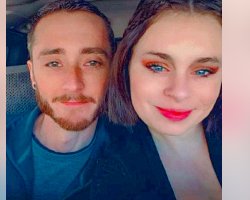Why I Believe in Narconon

I was born in Columbus, Ohio, and moved to Syracuse, New York after my parents divorced when I was five. I grew up in DeWitt, a suburb of Syracuse. Today, I work as a Network Engineer for the state’s emergency management agency—the state-level equivalent of FEMA.
My exposure to Narconon began during my time in the Air Force. Back then, I was somewhat unfocused in life and had done a lot of drugs in a short period. I was stationed at the highest geographical Air Force base in the continental U.S., with very little social life. That isolation contributed to poor decisions and drug use.
Eventually, I ended up in the hospital with Hepatitis C, which I took as a wake-up call. During that hospital stay, I was caught in possession of marijuana. I was court-martialed, found guilty, and sentenced to six months of hard labor.
While serving my sentence in Colorado, I was informed I had to attend drug counseling. Initially, I resisted—especially after learning it was run by a psychiatrist. Part of my family had their own history with that profession and wasn’t interested. However, the next week, a group from Narconon came in instead.
None of us knew what to expect, but that first session was a turning point. We were paired up in chairs and began doing training drills that, to be honest, made no sense at first. But something strange happened—I felt better. The drills helped me focus, control my thoughts, and sharpen my intention. It was the first time I felt I could direct my mind rather than being pushed around by it.
As a result, my sentence was reduced, and I was transferred to another base. I continued to improve, and although I had done many drugs before, I never returned to using. Narconon had helped me reclaim responsibility for myself. I became more stable, more driven, and more honorable in my actions.
Years later, in 2012, I was at Narconon and spent 4.5 months there, even running the center for two months while the executives were away. During that time, I treated the students with dignity and respect—and saw them respond in kind. Just making them feel like someone truly cared had a profound effect. That simple principle—treating people as valuable and capable individuals, no matter their past—has stayed with me ever since.
I come from a large family of eight kids. Addiction and dysfunction touched several of us. A sister who never graduated from 20 years of college and struggled through life. A brother whose marriage ended in tragedy and years of estrangement from his children. Some of it was fueled by drugs; some of it was just life gone wrong. But I’ve seen up close how addiction devastates families—and I’ve also seen how real help can rebuild lives.
The most powerful part of the Narconon program for me is the training drills. They gave me back control over my thoughts and behavior. Later, when I did Objectives, I was blown away by how effective they were. I was so inspired that I spent over 100 hours helping other students complete theirs. Watching them grow—seeing the change happen in real time—was unforgettable.
If there’s one message I’d send to anyone battling addiction or helping someone who is, it’s this:
“If you give Narconon a real chance—you can rise to a level you never imagined. Your family, your community, and your future self will thank you.”
You might feel lost, broken, or unsure if anything can help. I’ve been there. But if you take this path—if you give Narconon a real chance—you can rise to a level you never imagined. Your family, your community, and your future self will thank you. Even if you’re uncertain, take the leap. If it doesn’t work, you can write to me and tell me. But I believe you’ll be glad you did.
My advice? Serve yourself by becoming a better, more honorable person. Then, help someone else. That’s how we create a better world. I still dream of opening my own Narconon center one day. Because I know I’m at my best when I help others find their way out of addiction and into a better version of themselves.
Mark B., Narconon Graduate


 ®
®